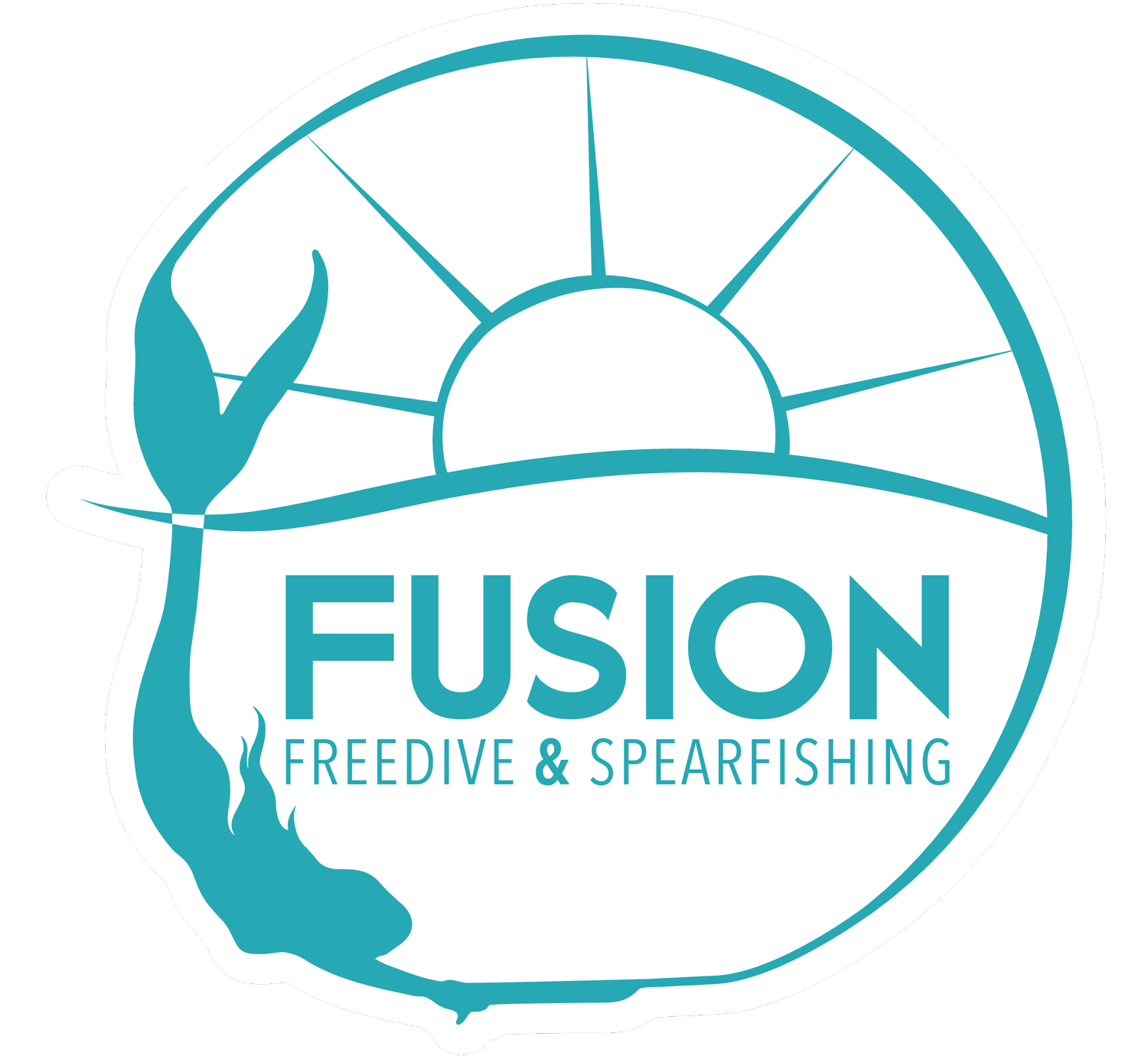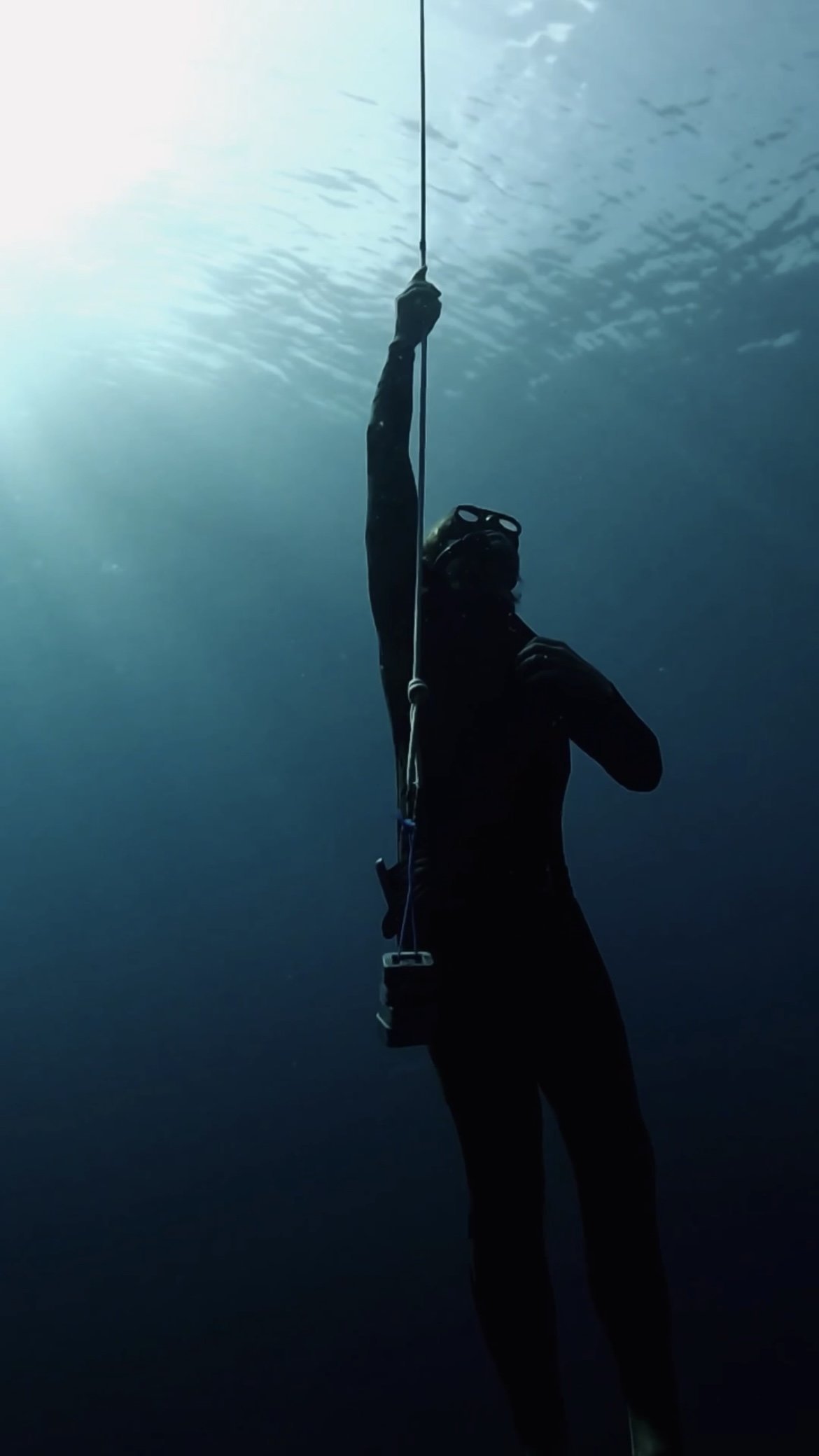Is Freediving Safer Than Scuba Diving?
Hey there, ocean lovers! If you’ve ever looked out at the ocean and wondered about diving down into its depths, today’s your lucky day. We’re diving deep into the world of freediving versus scuba diving. Ever thought about which one’s safer? Stick with us as we break it all down.
And hey, if you’re planning a trip to Bali and want to explore some underwater magic, make sure to check out Fusion Freedive and Spearfishing. We’re not just about diving – we’re all about making your time in Bali unforgettable. Whether you're a newbie or a seasoned pro, we’ve got everything you need for an awesome freedive in Bali’s crystal-clear waters!
What’s the Difference?
First off, let’s break it down. Freediving is like taking a deep breath and diving into a whole new world underwater. It’s about simplicity and connecting directly with the ocean. You slip into the water with just your fins, mask, and a wetsuit—no bulky tanks or complicated gear weighing you down. It’s pure, serene, and lets you experience the underwater world on your own terms, relying on your breath-holding ability and finesse in the water.
On the flip side, scuba diving opens up another level of exploration. It’s more like strapping on a mini life-support system designed to keep you comfortable and safe while you delve deeper and stay longer beneath the surface. With scuba gear, you can breathe freely and move more effortlessly, exploring reefs, wrecks, and marine life that might be out of reach with just a lungful of air.
Scuba diving equipment includes tanks filled with compressed air or enriched oxygen, regulators to deliver that air smoothly, buoyancy control devices (BCDs) for adjusting your depth, and other gadgets to monitor your dive and keep you safe. It’s a bit more technical than freediving, requiring training not just in diving techniques but also in equipment operation and safety procedures.
Both freediving and scuba diving offer incredible opportunities to experience the underwater world, each with its own charms and challenges. Whether you prefer the simplicity and quiet of freediving or the extended exploration capability of scuba diving, Bali’s waters offer amazing experiences for both types of divers.
Safety Considerations
Gear and Training:
Freediving: It’s just you, your fins, mask, and a wetsuit. You don’t need a lot of gear, but you do need proper training. Knowing how to hold your breath safely and manage your body underwater is crucial.
Scuba Diving: More gear means more things can go wrong. You need to learn how to use the equipment, monitor your air supply, and manage decompression stops to avoid issues like the bends.
Depth and Time:
Freediving: You’re usually not going super deep, and your time underwater is limited by how long you can hold your breath. This naturally limits your exposure to potential dangers.
Scuba Diving: You can go much deeper and stay longer, but this also means more time to run into problems. Deeper dives come with higher risks.
Environmental Awareness:
Freediving: You’re more in tune with your surroundings since you don’t have equipment noise. This can be a safer way to notice any dangers or marine life around you.
Scuba Diving: Sometimes the noise and focus on equipment can distract you from what’s happening in the water around you.
Physical Fitness:
Freediving: Requires good physical fitness and breath control. If you’re in good shape and trained, it can be a very safe activity.
Scuba Diving: Also requires a certain level of fitness, but there’s more reliance on equipment. Knowing how to handle it properly is key to staying safe.
Emergency Situations:
Freediving: Emergency scenarios in freediving are mostly related to breath-hold limits and managing your buoyancy. With good training, these risks are minimized.
Scuba Diving: Emergencies can range from running out of air, equipment malfunctions, to decompression sickness. Scuba divers need to be prepared for various contingencies.
Which One is Safer?
It really depends on how you look at it. Freediving, with proper training and respect for your limits, can be very safe. There’s less equipment to fail, and you’re not going as deep or staying as long. Scuba diving, on the other hand, allows you to explore more of the underwater world, but it comes with its own set of risks and the need for thorough training.
In both cases, training and respecting the ocean are essential. And if you’re in Bali and want to give freediving a shot, come visit us at Fusion Freedive and Spearfishing. We’ll make sure you have an amazing and safe experience!
Why Choose Freediving in Bali?
Bali is a paradise for water activities. Whether you’re looking to tick something off your to-do list in Bali or just want a new adventure, freediving is perfect. Here are a few reasons why:
Stunning Locations: From the crystal-clear waters of Amed to the vibrant marine life in Nusa Penida, freediving in Bali is a visual treat.
Tranquility: Unlike scuba diving, freediving is silent and serene. It’s just you and the ocean – a perfect way to connect with nature.
Community: At Fusion Freedive and Spearfishing, we have a friendly and supportive community. Whether you’re a newbie or a pro, you’ll feel right at home.
Levels of Freediving Courses
To ensure safety and progress in freediving, it's important to take structured courses. Here at Fusion Freedive and Spearfishing, we offer a range of courses:
Perfect for beginners.
Focuses on basic skills, safety, and breath-hold techniques.
Teaches you how to dive comfortably to depths of around 10-20 meters.
For those who have completed Level 1 or have some freediving experience.
Delves deeper into advanced techniques, including equalization and deeper dives up to 30 meters.
Emphasizes longer breath-holds and more efficient diving.
The advanced course for serious freedivers.
Focuses on deep diving (beyond 30 meters) and mastering advanced techniques.
Includes intensive safety training and preparation for competitive freediving.
Spearfishing Course
Interested in combining your freediving skills with spearfishing in Bali? Our Spearfishing Course is perfect for you. Learn sustainable and ethical spearfishing practices while enhancing your underwater hunting skills. This course covers:
Spearfishing techniques.
Understanding marine life and habitats.
Safety and ethical practices.
Equipment handling and maintenance.
Why Fusion Freedive and Spearfishing?
At Fusion Freedive and Spearfishing, we pride ourselves on offering the best freediving and spearfishing experiences in Bali. Here’s why you should choose us:
Experienced Instructors: Our team is made up of passionate and knowledgeable instructors who are dedicated to your safety and enjoyment.
Small Groups: We keep our group sizes small to ensure personalized attention and a better learning experience.
Top-notch Equipment: We use high-quality gear to make sure you’re comfortable and safe during your dives.
Beautiful Locations: We take you to the best diving spots in Bali, where you can enjoy the vibrant underwater world.
So next time you’re planning your Bali diving trip, think about trying freediving. It’s a unique, safe, and incredibly rewarding way to explore the underwater world. Plus, you get to hang out with us at Fusion Freedive and Spearfishing – what could be better?
Happy diving, and see you in Bali!





